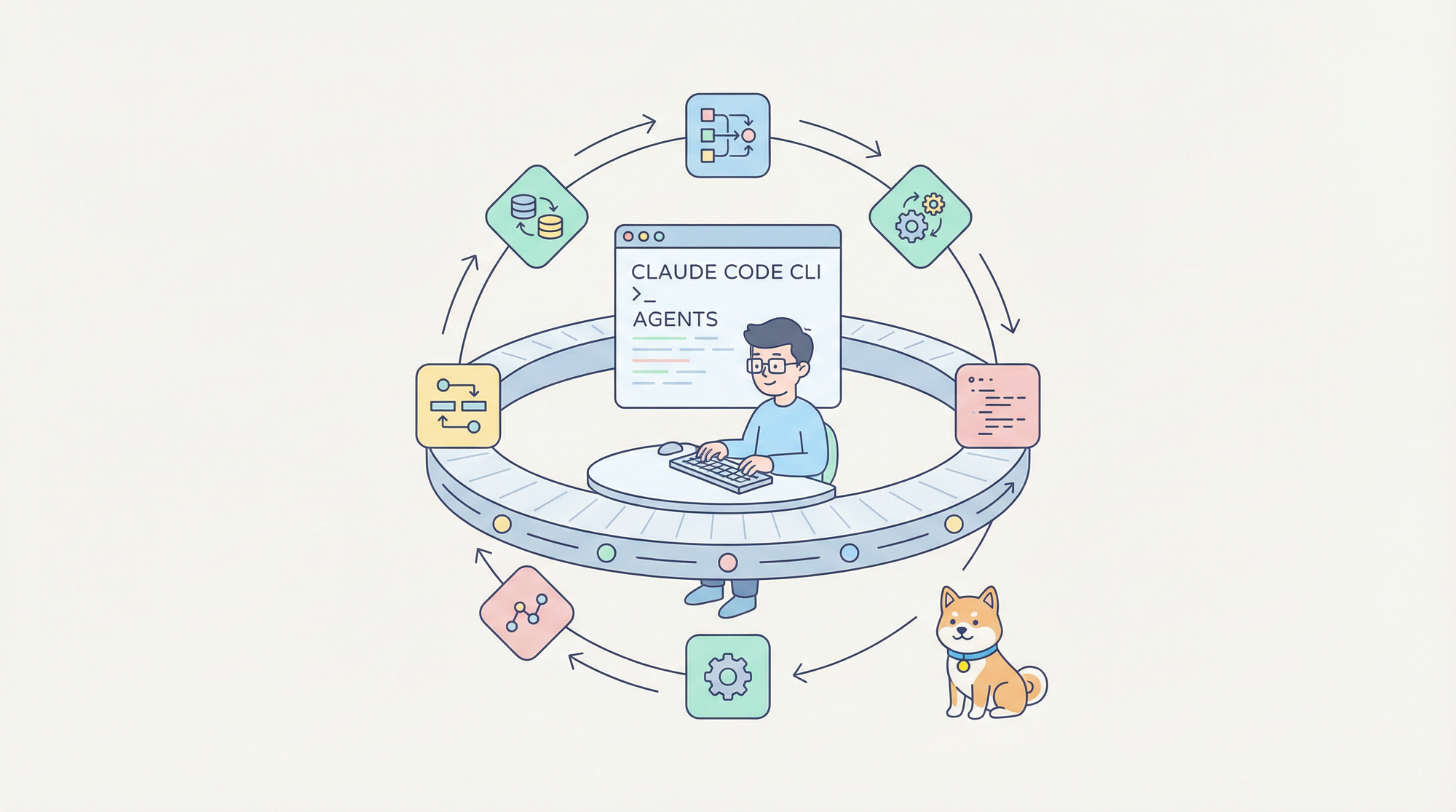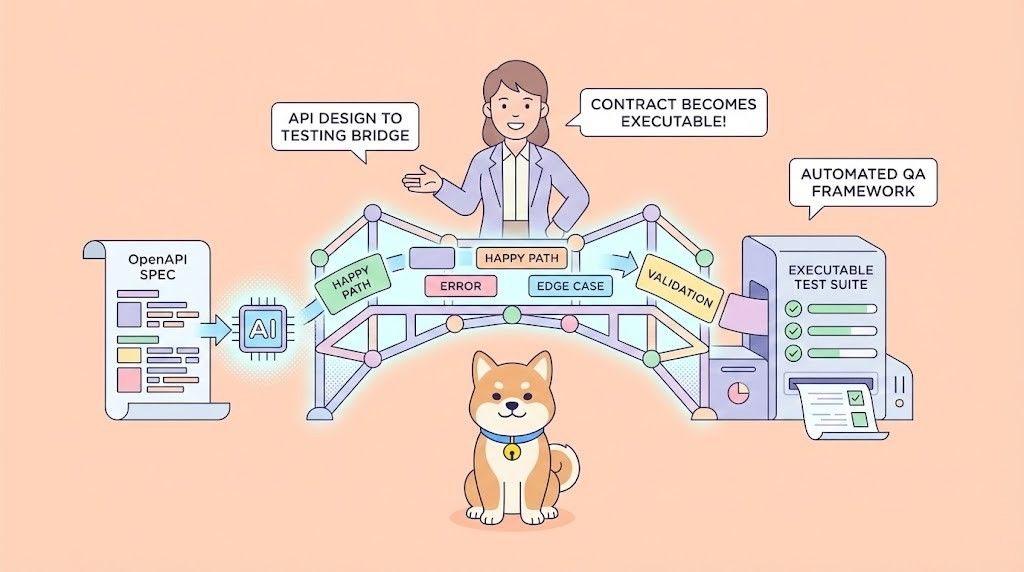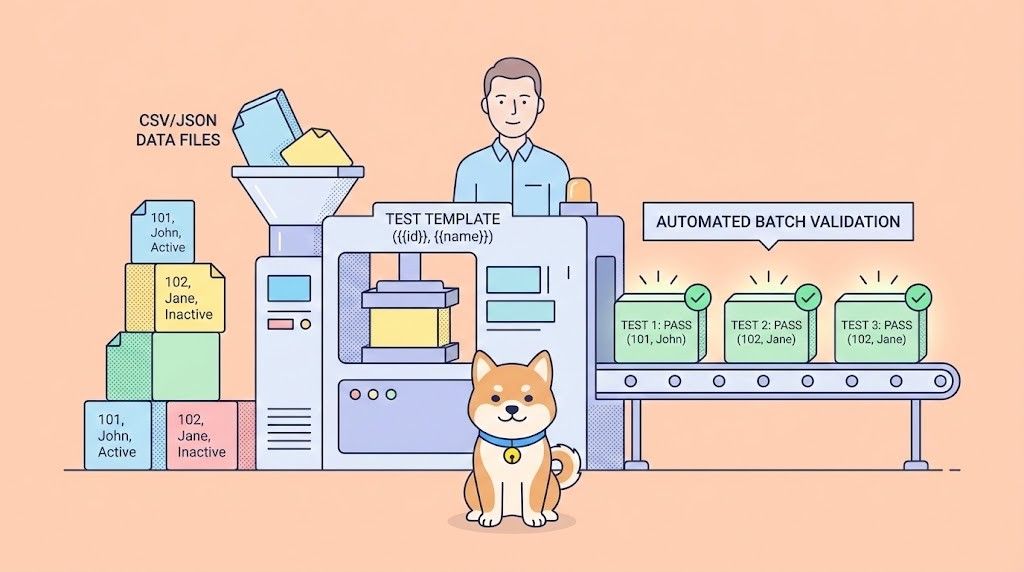The world of cryptocurrency is ever-changing, with new assets, markets, and technologies emerging daily. For developers building crypto-related applications, having access to accurate, reliable, and comprehensive data is crucial. Whether you're developing a crypto trading bot, portfolio tracker, or financial analytics platform, the right API can make a world of difference.
With so many options available, it can be challenging to determine which APIs offer the most robust features, ease of use, and scalability. In this article, we’ll explore some of the best crypto APIs in 2026, focusing on those that provide real-time and historical data, support complex use cases, and integrate seamlessly with your projects.
To effectively integrate and test these APIs, utilizing a comprehensive platform like Apidog can be highly beneficial. Apidog is an all-in-one API development platform that streamlines the process of designing, testing, and managing APIs. It offers a user-friendly interface for defining API endpoints, sending requests, and analyzing responses, making it an invaluable tool for developers working with various APIs.
By leveraging Apidog, you can ensure seamless integration and efficient testing of the cryptocurrency APIs discussed, enhancing the development and performance of your crypto-related applications.
Integrating Cryptocurrency APIs with Apidog: A Step-by-Step Guide

Integrating cryptocurrency data into your application or project has never been easier with the help of Apidog, a powerful API management and testing tool. Whether you're fetching real-time price data or historical market trends, Apidog simplifies the process of connecting with popular crypto APIs like Coinbase, Binance, Kraken, and others. Below, I’ll walk you through the steps on how to use these APIs with Apidog.
Step 1: Create a New Project in Apidog
- Open Apidog: If you haven’t already, sign in or create an account on Apidog’s platform.
- Create a New Project: Once you’re logged in, click on the “Create New Project” button. This will serve as the workspace for your API integration.

Step 2: Add the API Endpoint
- Locate the API Documentation: Each crypto API, such as Coinbase or Binance, offers documentation that includes the available endpoints. For example, Coinbase’s endpoint to get real-time Bitcoin price data is:
https://api.coinbase.com/v2/prices/BTC-USD/spot
- Create a Request: In your Apidog project, create a GET request to this endpoint.
- Go to the Request tab.
- Set the Method to GET.
- Paste the API endpoint URL in the URL field.
Step 3: Set Up Authentication (If Required)
Some crypto APIs, like Binance or Kraken, require an API key for authentication. For public endpoints (like Coinbase), you typically don’t need an API key.
For Public APIs (e.g., Coinbase): Simply leave the Authorization tab empty since no authentication is required.
Many crypto APIs allow you to add query parameters to customize the data you receive. For instance, if you want to get the price for a different trading pair, you can modify the URL to include a different symbol, such as BTCUSDT for Bitcoin to USDT.
Example:
- Coinbase URL:
https://api.coinbase.com/v2/prices/BTC-USD/spot - Binance URL:
https://api.binance.com/api/v3/ticker/price?symbol=BTCUSDT
- Add Parameters: In Apidog, you can add query parameters by clicking the Params tab.
- Customize: Input the required parameters, such as
symbol=BTCUSDTfor a specific trading pair.
Step 5: Send the Request
Test the Request: Click on the Send button in Apidog. The platform will send the request to the crypto API, and you’ll receive a response containing the requested data.

- For example, the response from Coinbase may look like:
{
"data": {
"amount": "94112.68",
"base": "BTC",
"currency": "USD"
}
}
{ "data": { "amount": "94112.68", "base": "BTC", "currency": "USD" } }
{ "data": { "amount": "94112.68", "base": "BTC", "currency": "USD" }}
- This will display the latest price for Bitcoin in USD.
Step 6: Review and Use the Response Data
Once you’ve received a response, you can:
- Inspect the Data: Review the JSON data returned by the API to ensure it includes the information you need (e.g., price, volume, market cap).
- Use in Your Application: If you're integrating the API into a larger project, you can now use the response data programmatically. Apidog also allows you to test and modify the requests to ensure you’re receiving the correct data.
Step 7: Automate and Optimize
- Schedule Requests: For real-time applications (like price tracking apps), you can schedule API requests in Apidog to run at regular intervals.
- Optimize Performance: Use Apidog’s response handling features to filter unnecessary data, ensuring your application remains efficient and scalable.
By following these simple steps, you can integrate real-time crypto data into your application using Apidog. Whether you’re working on a trading platform, portfolio tracker, or financial analysis tool, Apidog streamlines the process of testing and managing APIs, making it easier to focus on building your project.
Now, let's explore the top 10 cryptocurrency APIs that can elevate your projects:
1. Coinbase API: The Gateway to the Largest Crypto Exchange

Coinbase is arguably one of the most well-known cryptocurrency exchanges worldwide. In addition to its user-friendly platform, Coinbase offers an API that provides developers with access to real-time and historical price data, as well as market statistics for hundreds of cryptocurrencies.
Key Features:
- Real-Time & Historical Data: Developers can pull up-to-date pricing data for thousands of cryptocurrencies and historical price charts.
- Secure Transactions: The API integrates with Coinbase’s exchange, allowing developers to perform actions such as placing orders, managing portfolios, and conducting transactions in a secure environment.
- Account Management: Beyond data access, the Coinbase API also allows developers to manage wallets and accounts, making it ideal for building comprehensive financial applications.
Best For:
- Developers who are building cryptocurrency exchanges or financial apps that require transaction management alongside price data.
- Businesses seeking a well-supported, reliable API with a secure infrastructure.
2. Binance API: Powering High-Volume, High-Performance Applications

Binance is one of the largest crypto exchanges in the world and offers one of the most robust APIs available. Binance’s API supports a wide range of features, including real-time market data, trading capabilities, and wallet management.
Key Features:
- High Scalability: The API is designed to support both small-scale projects and large-scale commercial applications. Binance’s low latency makes it ideal for applications that require high-frequency trading or real-time data tracking.
- Comprehensive Data: The Binance API offers data across more than 500 cryptocurrencies, including real-time prices, trading volumes, and historical data.
- Spot & Margin Trading: Developers can integrate spot and margin trading functionality into their apps, making it a great choice for advanced trading applications.
Best For:
- High-performance trading bots or financial platforms that require quick, high-frequency updates.
- Advanced applications that want to leverage both spot and margin trading features.
3. Bitfinex API: Detailed Market Data and Advanced Trading Features

Bitfinex is a popular exchange known for its advanced trading options, including margin trading, derivatives, and lending. The Bitfinex API gives developers access to detailed market data, as well as trading capabilities.
Key Features:
- Market Data: Bitfinex provides access to market depth, price history, and real-time market data across a wide array of cryptocurrencies.
- Advanced Trading: The API supports more advanced trading strategies, such as margin trading, lending, and derivatives, making it perfect for sophisticated financial applications.
- Security: Bitfinex places a strong emphasis on security, with two-factor authentication (2FA) and other protections in place.
Best For:
- Developers building trading applications with advanced features like margin trading and derivatives.
- Security-conscious applications that require robust user authentication and secure transaction management.
4. Kraken API: A Veteran in the Crypto Data Space

Kraken is one of the oldest crypto exchanges, known for its strong security features and comprehensive range of cryptocurrencies. The Kraken API offers detailed market data, including historical data, real-time pricing, and trading data.
Key Features:
- Comprehensive Coverage: Kraken’s API supports hundreds of cryptocurrencies, providing access to both real-time price data and historical pricing.
- Trading & Account Management: Like other major exchanges, Kraken’s API supports trading functionality and account management, making it a solid choice for building full-featured financial applications.
- Secure Environment: Kraken is well-regarded for its security, offering features like 2FA and advanced encryption for data transactions.
Best For:
- Developers focused on building secure trading platforms with real-time market data.
- Businesses that need a solid API for handling cryptocurrency transactions with high security.
5. CoinGecko API: More Than Just Price Data

CoinGecko is a popular resource for tracking cryptocurrency prices, but it goes beyond just providing basic market data. The CoinGecko API offers detailed information on over 6,000 cryptocurrencies, including community data, developer activity, and market cap.
Key Features:
- Comprehensive Market Data: CoinGecko provides detailed data on price, volume, market capitalization, and supply across thousands of cryptocurrencies.
- Additional Insights: The API also offers data on a project’s developer activity, community engagement, and liquidity, making it ideal for building research and analytics tools.
- Free Tier: CoinGecko offers a robust free tier, which makes it an attractive option for smaller developers or startups.
Best For:
- Developers building crypto research platforms or applications that need insights into community engagement and developer activity.
- Users who want a free API that still provides comprehensive market data.
6. CoinMarketCap API: The Go-To for Crypto Data Coverage

CoinMarketCap is one of the most widely used resources for crypto data, offering detailed information about prices, trading volumes, market caps, and more. The CoinMarketCap API gives developers access to a wealth of market data, perfect for powering apps that track and analyze the crypto space.
Key Features:
- Real-Time and Historical Data: CoinMarketCap provides real-time price data and historical pricing for a wide range of cryptocurrencies.
- Comprehensive Coverage: The platform supports thousands of digital assets, ensuring that developers have access to the most up-to-date and detailed data available.
- Integration with Analytics: CoinMarketCap also offers tools that can integrate with analytics software, helping developers build more sophisticated financial applications.
Best For:
- Developers building apps that require access to a wide array of cryptocurrencies and detailed market data.
- Projects that need a well-established, reliable source of crypto data.
7. CryptoCompare API: Flexible and Scalable for Custom Applications

CryptoCompare is another well-established player in the crypto data space, offering APIs that allow developers to access real-time and historical price data, as well as a wide variety of market metrics.
Key Features:
- Wide Data Coverage: CryptoCompare covers a broad spectrum of cryptocurrencies and offers a variety of different market pairs.
- Customizable Data Streams: Developers can customize the types of data they want to receive, making it a great choice for tailored applications.
- Robust Trading Data: The API supports not only price data but also trading volume, order books, and liquidity data.
Best For:
- Developers building applications that require customizable data streams or specific market data.
- Financial applications focused on tracking a wide range of market conditions.
8. Messari API: Deep Market Insights for Professional Analysis

Messari is a premium analytics platform that offers detailed insights into the cryptocurrency market. The Messari API provides developers with access to a wealth of information about the crypto space, including historical data, token metrics, and social sentiment.
Key Features:
- In-Depth Market Analysis: Messari offers deep insights into the performance of individual cryptocurrencies, along with their developer activity, market behavior, and social media presence.
- High-Quality Data: Messari is known for its high-quality, accurate data, which makes it ideal for applications that require in-depth market analysis.
- Advanced Filtering: The API allows developers to filter data by specific criteria, providing a customized data experience.
Best For:
- Developers working on sophisticated market analysis tools and professional-grade financial applications.
- Crypto applications that require detailed, high-quality insights into token performance and social sentiment.
9. Nomics API: Real-Time Data for Professional Use

Nomics is a powerful crypto data platform that offers an API for accessing high-frequency market data, including price information, market cap, and trading volume across thousands of cryptocurrencies.
Key Features:
- High-Frequency Data: Nomics offers one of the most accurate and high-frequency sources of data for real-time market tracking.
- Comprehensive Coverage: The API supports data across a wide variety of cryptocurrencies and exchanges, ensuring that developers have access to the most relevant data.
- Security Features: Nomics also emphasizes security and offers robust API access control to ensure safe data transactions.
Best For:
- Developers who require real-time data at a high frequency for professional-grade applications.
- Traders and institutions that need access to comprehensive market data in real-time.
10. The Graph API: Querying Blockchain Data for dApps

The Graph is a unique API designed specifically for decentralized applications (dApps). Unlike other APIs that focus on cryptocurrency exchanges, The Graph allows developers to query data from blockchains like Ethereum and IPFS.
Key Features:
- Blockchain Queries: The Graph API allows developers to query data directly from blockchain networks, enabling dApp developers to access transaction data, smart contract interactions, and other blockchain activities.
- Subgraphs: The Graph allows developers to create "subgraphs" that index data from blockchains, enabling more efficient querying.
- Decentralized:
The platform is designed for decentralized applications, making it ideal for projects building on blockchain networks.
Best For:
- Developers building decentralized applications (dApps) that need to query blockchain data.
- Projects that require querying and indexing blockchain data in a decentralized manner.
Conclusion: Choosing the Right Crypto API for Your Project
The right crypto API can provide developers with the real-time and historical data needed to build cutting-edge applications in the rapidly evolving world of cryptocurrency. Whether you're building a trading platform, a portfolio tracker, or a dApp, the APIs listed above offer a range of features, from simple price data to in-depth market analysis and advanced trading capabilities.
As the crypto market continues to grow, so too will the tools and APIs available to developers. By selecting the right API, you can ensure that your application has the data it needs to stay competitive in this fast-paced, dynamic space.



